Remove outer edge of root ball
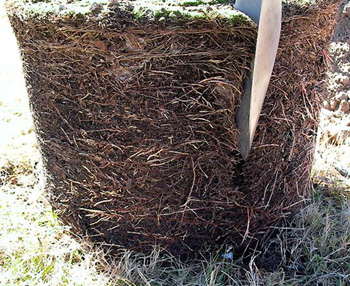
New research (2009) is suggesting that slicing root balls as shown above does not result in more roots in landscape soil nor improve tree stability in the landscape.
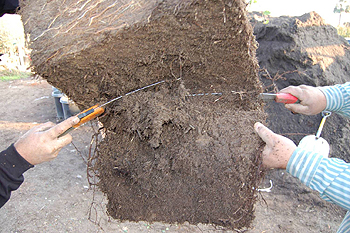
Instead we think that the entire outer inch of the sides and bottom of the root ball should be removed. This can be accomplished before the tree is placed into the planting hole (above photo). Be sure to cut through roots just before the point where they dive deeply into soil (see photos below).
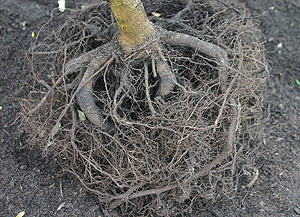
Roots on some trees often circle or dive deeper into the media when they reach the sides of a container.
The tree pictured is currently in a #45 container. The large diving roots were deflected down when the tree was in the #15 container. If these several large roots are cut at the point just before they turn downward, new roots will grow more-or-less straight out from the trunk. This should make the tree more stable.
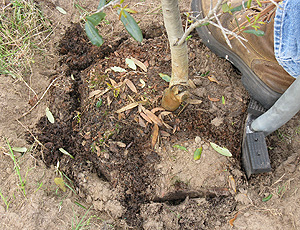
Here is a tree being root pruned just after planting it into the landscape.
Shaving the root ball can also be done after the backfill has been placed around the root ball. This helps hold the tree firm and makes this a one-oerson job. Note the position of the shovel that results in all circling and diving roots removed from the root ball. The shovel is placed about 1.5 inches in from the edge of the container root ball. See the photo below for root growth following this root pruning treatment.
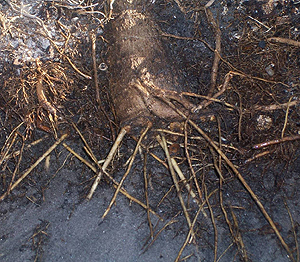
New roots growing from a cut diving root 7 months after pruning. The trunk is off screen at the top of the photo.
New roots are growing more-or-less in line with the cut root. For this reason it is important to cut the root tangent to the trunk. Irrigated tree regularly following this treatment.

